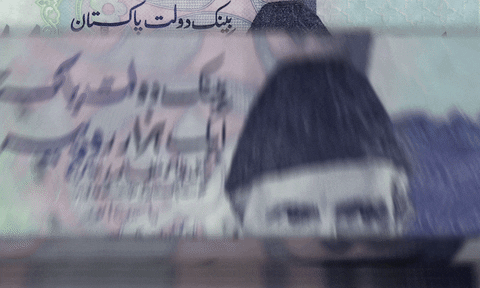Speakers at a discussion programme have applauded the progress achieved in the dialogue process between Pakistan and India and hoped it would bring lasting peace and progress to the region by amicably resolving the outstanding matters. The discussion was organised by Stimson Centre at Woodrow Wilson Centre for International Scholars, on the topic: 'Prospects for Peace in South Asia.' The speakers included Rafiq Dossani, Robert Hathaway, Michael Krepon, Ambassador Teresita Schaffer, Henry Rowan, Ambassador Tauqir Hussain and Howard Schaffer. Rafiq Dossani, a noted Indian scholar said the domestic changes that had taken place in both the countries indicated that prospects for peace were "quite encouraging." He referred to confidence building measures, signing of agreements and exchange of delegations, and expanded visits to both the countries by a cross section of people.
He praised President General Pervez Musharraf for adopting a far-sighted approach, in Pakistan's efforts to seek peaceful resolution of matters.
About the United States, he viewed that historically, it had a limited interest in South Asia and only got involved to manage a crisis.
Robert Hathaway, director of Woodrow Wilson said he was moderately optimistic of the outcome of the peace process between Pakistan and India. According to him, the chances of success were less than 50percent but better than in the recent past. India recognised that it would not be able to achieve big power status, without reaching accommodation with Pakistan. He said, BJP Government's engagement with Pakistan did not invoke criticism during the election campaign in India.
Hathaway claimed that Pakistan was feeling on the defensive due to India's rise and that there was a rising public opinion in Pakistan and India, which was in favour of peace and normalcy.
Continued success of dialogue, he said would require inspired leadership and that the matter could not be left to bureaucracies.
He was critical of the so-called extraordinary short-sightedness of US in opposing the Iran-Pakistan-India Gas Pipeline Project.
Michael Krepon said that he was cautiously optimistic of the prospects for Pakistan-India peace.
He viewed that the dialogue push was prompted among others by 9/11, and tensions in South Asia in 2002. Due to the nuclear factor, he said, both Pakistan and India recognised the urgency of reducing tension.
The scholar on South Asia said the outline for the settlement of Kashmir issue was very much in view. He referred to the statements that LoC as border was not acceptable or that redrawing of boundaries was not possible.
"Both, President Musharraf and Prime Minister Singh are keen to move forward," Krepon said.
Ambassador Teresita Schaffer was optimistic of the peace process. She viewed that New Delhi-Srinagar dialogue had made little progress while the people of Pakistan and India needed to recognise that any substantive outcome would be less than what they expected.
BR100
7,859
Decreased By
-81.3 (-1.02%)
BR30
25,263
Decreased By
-385 (-1.5%)
KSE100
74,923
Decreased By
-594.8 (-0.79%)
KSE30
24,046
Decreased By
-232.2 (-0.96%)




















Comments
Comments are closed.